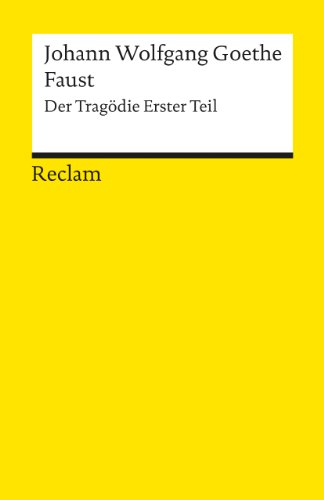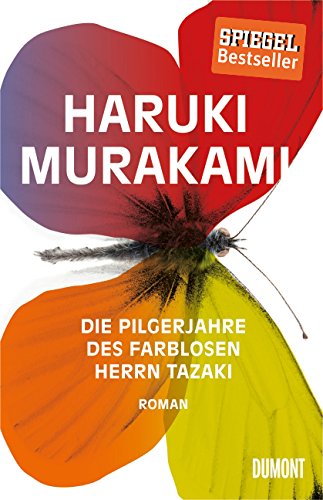
14 Entrancing Intermediate German Novels That Aren’t Too Easy or Too Hard
If you love to read, why not combine reading novels with learning the Germanic language?
You can check out some of our past recommendations for German novels, examining modern authors along with the classics.
But often you’ll come across books that are too easy for your German abilities, while other times, you might not understand more than half of a novel.
Keep reading to find the best intermediate German novels for your needs.
We’ve got everything from classic literature to modern thrillers to YA novels (Bildungsroman in German, which literally means “education novel.”)
Contents
Download: This blog post is available as a convenient and portable PDF that you can take anywhere. Click here to get a copy. (Download)
1. “James Bond 01 – Casino Royale” by Ian Fleming
This first book is a translated text, but it works great for intermediates since it’s fast-paced and many people know the James Bond storylines. The Casino Royale book follows Bond as he is sent to bankrupt a ruthless villain in a French Casino.
The thriller starts with the games looking up for Bond, with Le Chiffre, the villain, hitting a rough losing streak. This eventually changes, putting Bond at the mercy of one of the most dangerous people in the world, and pushing him to reach out for help from unexpected allies.
2. “Faust 1. Der Tragödie erster Teil“ by Johann Wolfgang Goethe
Goethe worked on “Faust” for most of his career, giving us a look into the mind of one of the greatest German writers. The story is broken up into scenes, which works well for people learning German. It’s meant as a play, but the story follows Dr. Faust and his meanderings as he gets in the middle of a battle between God and the devil.
Translated as “Faust 1. The First Part of the Tragedy,” the book is best read by intermediates and advanced learners who crave deep meanderings of a man who gets tempted by demons and devils, along with fights between him and his own human existence.
3. “Die Pilgerjahre des farblosen Herrn Tazaki“ by Haruki Murakami
Translated as “Colorless Tsukuru Tazaki and His Years of Pilgrimage,” this is the thirteenth novel by Japanese author Haruki Murakami. The book is about a 36-year-old man who ponders why his group of friends cast him out of their social circle back in school.
The book sold over one million copies in one month, and has various translations around the world. The main character, Tsukuru Tazaki, evaluates both his past and present, but his girlfriend urges him to take on the past as a grown-up instead of treating it like a child would.
4. “Glennkill: Ein Schafskrimi“ by Leonie Swann
This novel, which means “Three Bags Full” in English, is written from the point of view of a flock of sheep. They find their shepherd killed and go on a detective’s hunt to figure out who murdered him.
The book is written by Leonie Swann, and it not only observes how fictional sheep may respond to a murder mystery but also the townspeople who show up and speculate about what happened. This includes reporters, people who knew the shepherd, and those who simply want to gossip.
5. “Die Arbeit der Nacht: Roman“ by Thomas Glavinic
“Die Arbeit der Nacht: Roman,” also known as “Night Work,” is a must-read for post-apocalyptic literature fans. It’s about a protagonist named Jonas who finds himself completely alone on earth. The book dives deep into human existence, and why we are here on earth.
Austrian Thomas Glavinic penned the novel, and he adds an unusual twist when Jonas realizes that he is partaking in weird activities while he sleeps. A struggle ensues between Jonas and his subconscious, leading to a whole new subplot.
6. “Der Vorleser“ by Bernhard Schlink
“Der Vorleser” is what “The Reader” book and movie (with Kate Winslet) was based on. It’s about a 15-year-old German boy who has an encounter with a beautiful older woman. They eventually start having an affair, opening up the boy’s world to sex and bringing about several unexpected consequences.
Bernhard Schlink is the mastermind behind the intermediate-level novel, with a somewhat somber clarity that helps with understanding what the story is actually about, instead of forcing you to filter through strange prose.
7. “Der Richter und sein Henker“ by Friedrich Dürrenmatt
“Der Richter und sein Henker,” or “The Judge and His Hangman,” follows a terminally ill police detective who is struggling with his disease after his partner is murdered. You are introduced to the man’s enemy, and the book dives into themes about how good isn’t always around to serve justice. In fact, evil is often the best way to serve justice.
I like this one for intermediates because it keeps you turning the pages and interested in learning all the German words just to keep up with the story.
8. “Siddhartha” by Hermann Hesse
Written by Hermann Hesse, this classic gem is about a young man who abandons his family for something he deems more meaningful. He becomes restless and starts to follow his lust and greed. The man finds that this is truly the start of his new life, but it is not without pain.
Any book by Hermann Hesse is worthy of intermediate German reader status, but this is one of the popular ones, so you can surely find other people to discuss it with.
9. “Die verschwundene Miniatur“ by Erich Kästner
By Erich Kastner, this novel follows a butcher who has owned his business for quite some time. He decides to ditch his family and friends to start a life filled with travel. However, he gets tied up in an illegal art theft and his life tumbles down from there.
The title roughly translates to “The Missing Miniature,” and it has an alternative title, “Die Abenteuer eines empfindsamen Fleischermeisters,” or “The Adventures of a Sensitive Butcher.”
10. “Die Verwandlung“ by Franz Kafka
“Die Verwandlung,” or “The Metamorphosis,” is one of Kafka’s finest, and the novel is studied in colleges throughout the world. It follows a traveling salesman, who eventually finds himself transformed into a large insect. There is much controversy and speculation behind this book since Kafka leaves a cliffhanger.
The novella is a manageable read, and a solid place to start if you truly think you’re on your way into the intermediate level and moving up towards advanced learner status.
11. The Harry Potter series by J. K. Rowling, translated by Klaus Fritz
I know what you’re thinking. Harry Potter isn’t German.
But this teen wizard saga, which needs no introduction, was (and is) every bit as popular in Germany as it was in the English-speaking world. Everyone has read them. It’s just that most Germans read them in translation. This is very common in German media: originally English stuff is everywhere, and it becomes part of German pop culture just like it’s part of ours.
Translations also deserve a spot on this list because if you already know the story, then that makes reading these books even easier. You’ll have fewer “I have no idea what’s going on” moments because the contexts will already be clear.
12. “The Fault in Our Stars” by John Green, translated by Sophie Zeitz
Another translation, I know, but John Green’s books are a smash hit in Germany. In fact, many Germans read his books to work on their English, so YA as a study tool works both ways.
“Das Schicksal ist ein mieser Verräter” follows the love story of two American teens with cancer. It’s a coming-of-age tale for characters who, due to their condition, may never actually get to come of age. As a result, they grapple not only with typical teen issues, but also with their own mortality. Their carpe diem mentality eventually whisks them halfway around the world for what may be their last adventure, tracking down their reclusive favorite author in the Netherlands.
This is also where I should point out that you can’t just translate an English book’s title to find its German version. “Das Schicksal ist ein mieser Verräter” literally means “fate is a lousy traitor.” “The fault in our stars,” taken from its original Shakespeare quote, would actually be die Schuld der Sterne.
13. “Crazy” by Benjamin Lebert
The title looks English, but we’re finally dealing with an original German work. After all, there are a lot of English loanwords in German youth speak.
“Crazy” is the autobiographical story of a boy who bounces from boarding school to boarding school as he tries to find his way in life. The book describes his struggles with school, social relationships, his family and his developing sexuality. Sounds like “The Catcher in the Rye,” right? Except it’s set in late-1990s Bavaria, it’s a true story and the main character happens to be paralyzed.
14. “Tschick” by Wolfgang Herrndorf
Published in 2010, this book spent a lot of time on the Der Spiegel German best-seller list. It also won the German Youth Literature Prize in 2011.
“Tschick” is a joyride-road-trip novel at its core, but it’s also about school, relationships and fitting in. It follows the misadventures and misdemeanors of two outcasts: Maik, a 14-year-old German boy from a working-class Berlin neighborhood, and his Russian immigrant friend, Andrej Tschichatschow (called “Tschick”).
Pop star Beyoncé also plays a major role in the story because, in case you didn’t believe me yet, Anglophone pop culture is seriously everywhere in Germany.
How to Learn German With Intermediate Novels
Here are a few ideas of specific ways you can use these intermediate novels to boost your German:
- Go to the German version of Wikipedia to learn about the novel’s author. Where did their inspiration come from? It’s always easier to connect with a novel when you know about the author. This also helps you figure out any particular themes that the author wants you to recognize.
- Use the English version of the novel to swap back and forth when you hit areas that are difficult to comprehend.
- Choose a verb tense or conjugation to focus on while reading the novel. Use a pencil to circle or underline every instance of that particular tense or conjugation while reading through the story. Consider setting a timer for five minutes during this exercise so you can stop and see how you did.
- Bring up the novel’s English Wikipedia page, or search Google for a breakdown of chapter summaries. Once you complete a chapter in the German novel, write down what you think happened, or explain it to another person. Then go back to the English chapter summary and see how close you were.
If you enjoy reading German novels, you can also look into other types of German media, such as TV shows and podcasts, to round out your skills.
FluentU takes authentic videos—like music videos, movie trailers, news and inspiring talks—and turns them into personalized language learning lessons.
You can try FluentU for free for 2 weeks. Check out the website or download the iOS app or Android app.
P.S. Click here to take advantage of our current sale! (Expires at the end of this month.)
Why Read German Novels to Learn the Language
Novels work well in transitioning yourself from that beginner stage filled with flashcards and listening apps, to the world of true immersion. You may have read a few German books already, but beginners generally stick with children’s books, graphic novels or other options that have simple themes and repetitive sentences.
Here are some more reasons why these German novels are perfect for learning the language:
- Easier to understand: Since you may have read some of the classics back in school, you are familiar with the storylines, making it easier to understand what is going on.
- Evolution of language: You start to get a feel for how the language has transformed over the years since many of these novels are from a while back.
- Well-known: You can expand your grasp of the language by discussing the novels with others in German.
- New vocab: Intermediate novels assist with picking up new vocab and seeing how this vocab is placed into dialogue and conversational language.
- Variety of language: I would also argue that the intermediate German books have a wider range of storylines and language differences, giving you the chance to hear accents and phrases from medieval times all the way to the modern world.
- Cultural understanding: You often get a taste of history (whether fictional or not), further expanding your knowledge of how German culture has come to be what it is today.
Overall, dipping your nose in an intermediate novel presents a fun and educational way to learn German.
“Intermediate” fluency is tricky. If you’re on the CEFR levels B1 or B2 (or even higher), your first full-length novel in German may contain hundreds of words you’ve never seen before.
Hopefully, the above suggestions hit the sweet spot. Happy reading!
Download: This blog post is available as a convenient and portable PDF that you can take anywhere. Click here to get a copy. (Download)
And One More Thing...
Want to know the key to learning German effectively?
It's using the right content and tools, like FluentU has to offer! Browse hundreds of videos, take endless quizzes and master the German language faster than you've ever imagine!
Watching a fun video, but having trouble understanding it? FluentU brings native videos within reach with interactive subtitles.
You can tap on any word to look it up instantly. Every definition has examples that have been written to help you understand how the word is used. If you see an interesting word you don't know, you can add it to a vocabulary list.
And FluentU isn't just for watching videos. It's a complete platform for learning. It's designed to effectively teach you all the vocabulary from any video. Swipe left or right to see more examples of the word you're on.
The best part is that FluentU keeps track of the vocabulary that you're learning, and gives you extra practice with difficult words. It'll even remind you when it’s time to review what you’ve learned.
Start using the FluentU website on your computer or tablet or, better yet, download the FluentU app from the iTunes or Google Play store. Click here to take advantage of our current sale! (Expires at the end of this month.)











![Das Schicksal ist ein mieser Verrater [ The Fault in our Stars ] (German Edition) Das Schicksal ist ein mieser Verrater [ The Fault in our Stars ] (German Edition)](https://m.media-amazon.com/images/I/51ibbu8HMfL.jpg)









